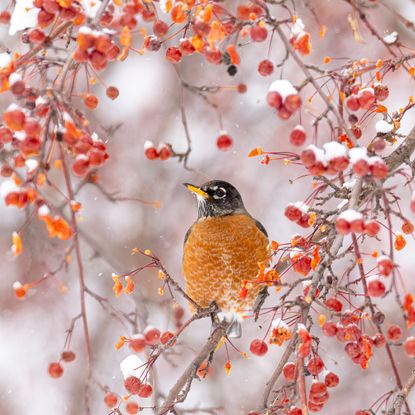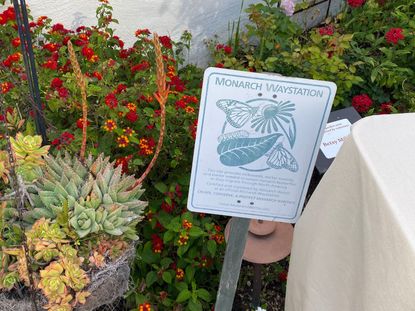Beneficial Garden Friends
There are many beneficial wildlife helpers in the garden. From natural predators that feed on pests and good garden bugs that pollinate plants to other garden friends likes frogs and birds, learning how to make your garden an inviting spot for them can help your garden flourish. In the following pages, you can find useful information on how to create garden friendly areas for beneficial insects and other garden friends. So keep reading to learn more about these wildlife helpers in the garden and how to take advantage of the benefits they offer.
Beneficial Garden Friends
-
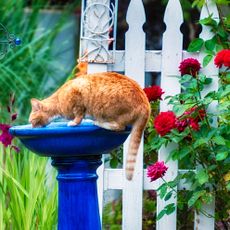
Do Bird Baths Attract Other Animals? How To Deter Pests
Keeping a bird bath in pristine condition is only half the battle for bird lovers. Does your bird bath attract other animals you’d rather it didn’t? We show you how to keep bird baths for the birds.
By Susan Albert
-
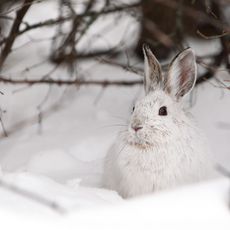
Winter Wildlife Watching In Your Backyard And Beyond
Even when your garden is quiet, there's plenty of fun to be had with winter wildlife watching. Find out how to make more of your plot’s nature-spotting potential
By Amy Grant
-
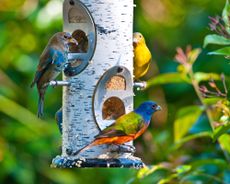
5 Tips To Get Birds Flocking To Your Yard – According To A Bird Feeding Expert
Attract more beautiful birds to your garden, and help to support wildlife, with these essential tips.
By Melanie Griffiths
-
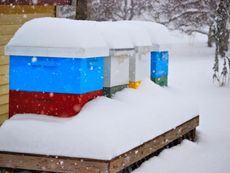
How To Winterize Bees: Tips To Prepare Hives For The Cold
Good beekeepers know to winterize their bees to help keep the colonies healthy from year to year. Let us teach you how.
By Bonnie L. Grant
-
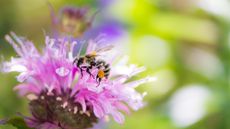
Complete Guide to Pollinators
From bees to beetles, learn all about the animals and insects that do the dirty work to keep your garden pollinated.
By Gardening Know How
-
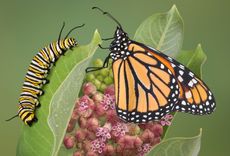
M Is For Monarch - 7 Things You Can Do to Help Fuel Fall Monarch Butterfly Migration
Watch and learn how you can do just 7 things to play an important role in monarch butterfly migration, including a fall fueling station.
By Heather Andrews
-
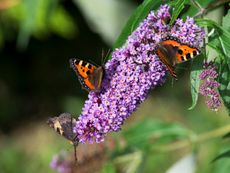
What is Planting in Drifts And How To Plant For Migrating Monarch Butterflies
Join us as we continue our tour around the butterfly garden in Adams Ricci Park and learn how to plant a fall fueling station.
By Heather Andrews
-
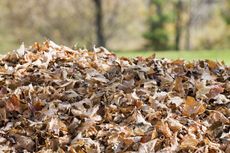
Fall Cleanup - Leaving Bee Hotels to Help Your Pollinator Garden
Pollinator gardens don’t stop being important when the flowers stop blooming. Read on to learn about leaving behind bee hotels.
By Heather Andrews
-
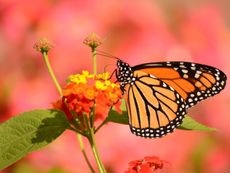
Flowers for a Fall Fueling Station - Annuals and Perennials That Can Help Fuel Butterfly Migration
Join us as we tour the butterfly garden in Adams Ricci Park and learn how to plant a fall fueling station.
By Heather Andrews
-
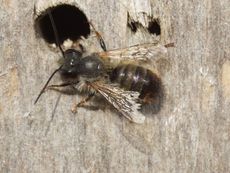
Mason Bees: Everything A Gardener Needs To Know
Mason bees aren't as famous as honey or bumble bees, but they're amazing native pollinators. Click here to read all about them.
By Mary Ellen Ellis
-
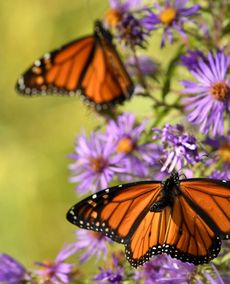
Monarch Butterflies - The Super Generation and How You Can Help Their Fall Migration
Join us as we learn about the monarch butterfly super generation, and how we can help them on their incredible journey.
By Heather Andrews
-
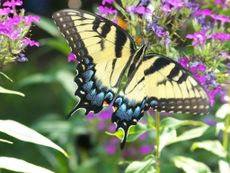
Starting A Pollinator Garden
When planting a new pollinator garden, there are a few key factors to take into consideration: light, soil, and water. Read on for more.
By Heather Andrews
-
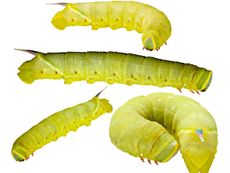
Learn About The Walnut Sphinx Caterpillar That Sounds Like A Bird
We bet you didn’t know that caterpillars make noise. Read about how their squeak and scream scares birds away.
By Bonnie L. Grant
-
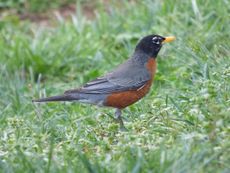
What Do Robins Eat: How To Attract Robins To Your Yard Or Garden
Watching birds is an enjoyable hobby for many homeowners. As with any endeavor, there are a few tips and tricks that can help to determine how many and which types will visit your backyard. Among the most common are American robins. Learn more in this article.
By Tonya Barnett
-
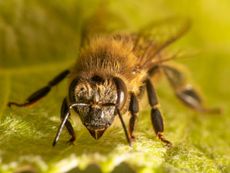
How Do Bees See Flowers?
Have you ever wondered how bees see? Click here to find out.
By Teo Spengler
-
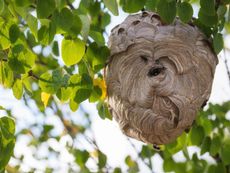
How To Identify Hornet, Wasp, and Bee Nests
Learn how to determine the differences among nests made by bees, wasps and hornets. It might save you a nasty sting.
By Amy Grant
-
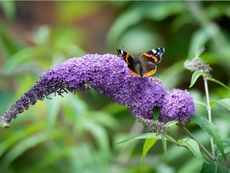
7 Worst Plants For Bees, Butterflies, And Pollinators
Not all plants are great for bees and other pollinators. Learn which 7 to avoid in your pollinator garden.
By Mary Ellen Ellis
